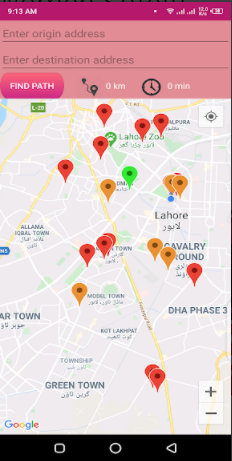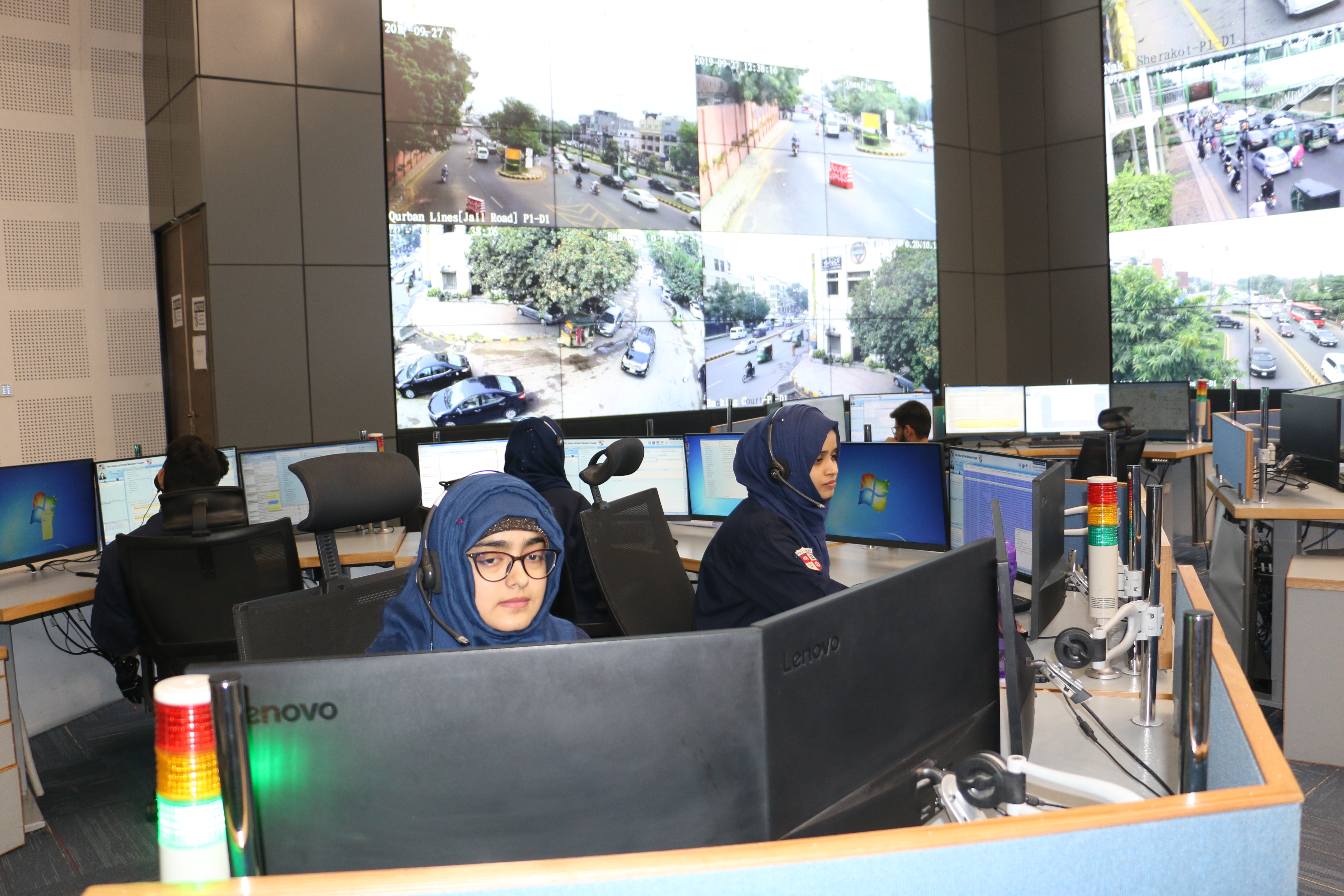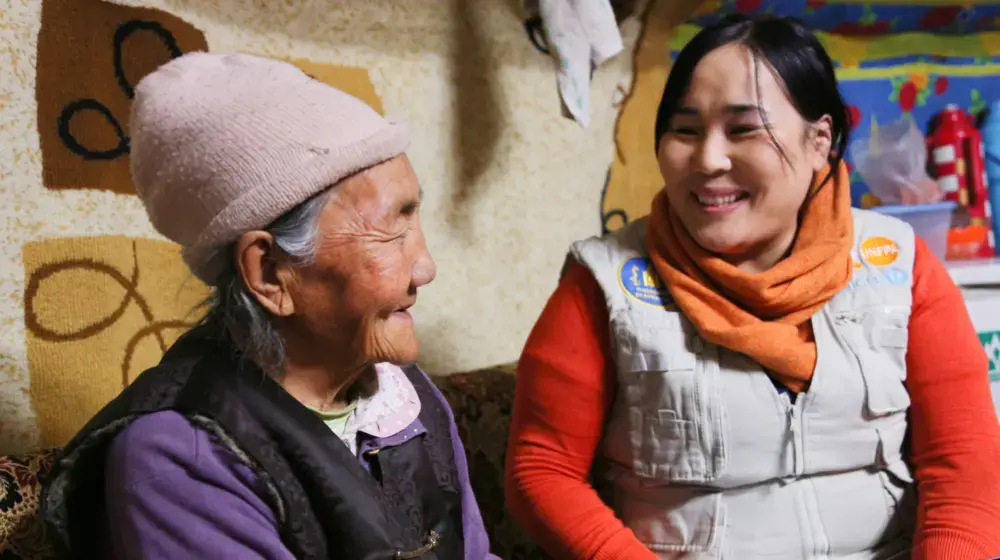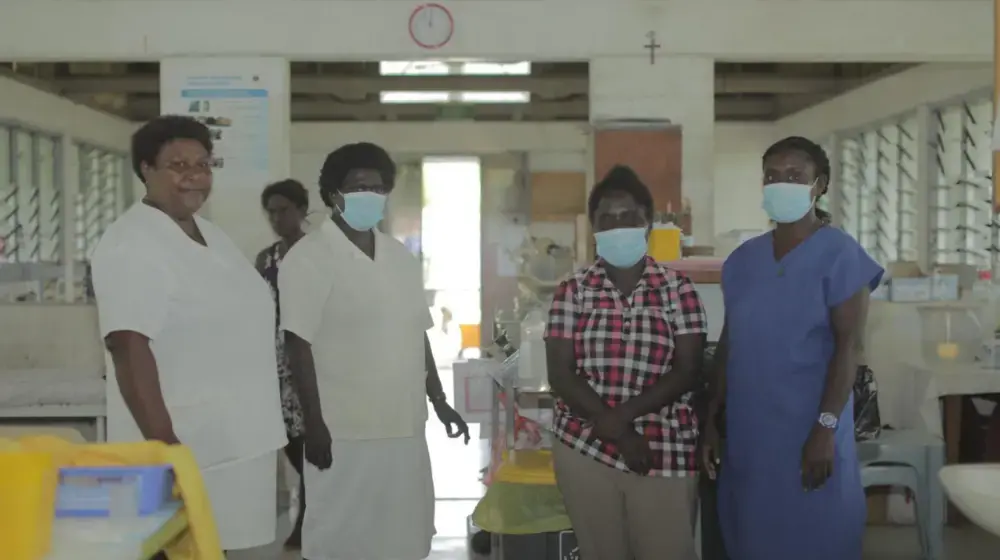RAWALPINDI, PAKISTAN - Well before the COVID-19 pandemic, Saima, like many women in Rawalpindi, was rarely at ease moving around her city by herself, given the risk of harassment or other forms of gender-based violence.
Moreover, at this time of crisis, with restrictions on mobility outdoors thanks to quarantines and lockdowns, reports of domestic violence have surged globally, with the likelihood of a spike in Pakistan as well.
However, government authorities in Punjab province in partnership with UNFPA Pakistan have been investing in mobile technology to help respond to these concerns.
This collaboration has recently helped upgrade the Women Safety smart app which was introduced two years ago by the Punjab Safe Cities Authority (PSCA) as an innovative solution to the challenges of mobility and violence facing women and girls.

In Pakistan, on average, every one in four women experiences emotional, physical or sexual violence[i]. This accounts for approximately eight million women grappling with various forms of violence every year.
The risk of violence has likely further increased as economic and social pressures mount amid the COVID-19 pandemic. Protection and response services are also under pressure.
The Women Safety app is equipped with essential features to help women in emergency situations to seek help and receive an immediate response.
Women using the app can alert the police on the emergency helpline 15 or send an auto text via WhatsApp to the PSCA. As soon as the message, with the location coordinates, is received designated teams are mobilized for an immediate response, heading to the caller’s precise location.
The Women Safety command and control centre where alerts through the app are received. Courtesy: Punjab Safe Cities Authority.
The app also allows women to mark a location safe or unsafe to help the Authority map ‘gender-based violence hotspots’ in Punjab province and inform nearest hospitals, police stations and other social services such as shelters to prepare for and respond to complaints in shortest time possible. Spaces marked as ‘safe’ are added to the app’s list of women-friendly spaces. Women can seek updates about the safest routes to travel before taking a journey.

“I was never really comfortable going out alone especially in the evening,” Saima explained. “But since I have downloaded this app, I feel safe. I know that help is just a text away.”
Violence spans both public and private spheres. The app also provides a safe way for women and girls facing the threat of domestic violence to alert the authorities.
“During the COVID-19 pandemic the Women Safety app provides me with a sense of security and much needed access to emergency services, as during quarantine women with disability are left even more isolated and prone to gender-based violence,” said Abia Akram, an activist for the rights of women living with disabilities.
The app is connected as well to the toll-free helpline 1043 of the Punjab Commission on the Status of Women to provide survivors of violence with counselling, referrals and legal support.
“The vision of PSCA is to make our cities and public spaces safe for everyone, especially women so they can participate in public life and benefit from economic opportunities,” said Muhammad Kamran Khan, Deputy Inspector General and Chief Administration Officer, PSCA. “The Women Safety app is a milestone for us towards achieving this vision. We appreciate the excellent partnership with UNFPA which is helping us improve our outreach.”
The app requires registrants to provide their national identity card number to rule out fake users. The PSCA follows data and privacy protection procedures to ensure data privacy and confidentiality of women’s personal information.
UNFPA is now working with PSCA to upgrade the app further and improve the quality of responses by training their staff on psychosocial support for survivors of violence and by supporting better outreach by promoting the app widely, to ensure it reaches those who need it. This will better allow real-time reporting of gender-based violence cases and ensure timely referral to relevant services.
“Gender-based violence takes place everywhere,” noted Lina Mousa, UNFPA Pakistan Country Representative. “Evidence shows women and girls in crises are especially vulnerable. Protection of women and girls from all forms of violence remains a top priority as we respond to the COVID-19 crisis. UNFPA is on the frontlines working with our national partners, government and NGOs to prevent gender-based violence as a critical element of the national response to the pandemic, at every level. In this digital age, technology has enabled us to connect women with safety and help during isolation and quarantine. This would not have been possible without the vision and leadership of the Punjab Safe Cities Authority.”
UNFPA is committed to enabling women’s and girls’ access to services, including psychosocial support services, especially those who are subjected to violence or who may be at risk of violence during the COVID-19 crisis and well beyond.
Ending gender-based violence and harmful practices against women and girls is a key transformative result for UNFPA, tied to both the Sustainable Development Goals as well as the landmark Programme of Action that stemmed from the 1994 International Conference on Population and Development (ICPD) whose overarching vision, grounded in gender equality, remains more vital than ever.
[i] PDHS 2017-18





